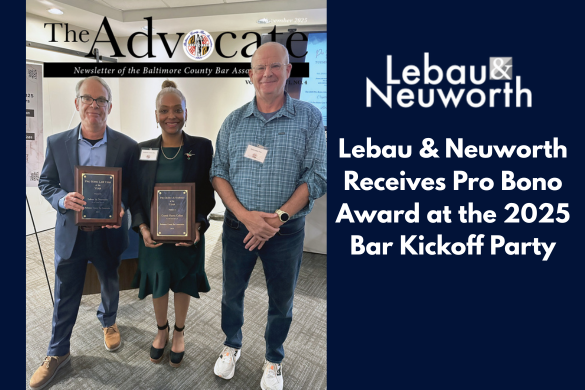The Maryland federal district court recently weighed in on what is necessary for an employee to state a retaliation claim under the False Claims Act, which is a whistle blowing law. The False Claims Act is a federal statute that allows persons to report fraud on the U.S. government and to recover possibly significant sums of money. Additionally, the False Claims Act make permits a retaliation lawsuit to be filed if an “employee, contractor, or agent is discharged, demoted, suspended, threatened, harassed, or in any other manner discriminated against in the terms and conditions of employment because of lawful acts done by the employee, contractor, or agent on behalf of the employee, contractor, or agent or associated other in furtherance of” the False Claims Act. This past week, in Layman v. Met Laboratories, Inc., the Maryland federal court said that the employee in that case had failed to state a False Claim Act retaliation claim for several reasons. First, the Court stated that the employee adequately alleged that he had engaged in “protected activity” – meaning that the employee did not do what was necessary to prove that he tried to report or stop the alleged violations of the False Claims Act. The Court held as follows:
The “protected activity” requirement of a FCA retaliation cause of action requires that an employee take some action “in furtherance” of a qui tam suit. 31 U.S.C. § 3730(h). The statute specifically protects “investigation for, initiation of, testimony for, or assistance in an action filed or to be filed under this section.” … Actions in furtherance of a qui tam suit generally include “situations in which litigation could be filed legitimately and excludes those in which an employee fabricates a tale of fraud to extract concessions from the employer, or just imagines fraud but lacks proof.” … However, this Court has previously held that “mere reporting of concerns to supervisors” does not amount to protected activity under the act. … “Simply reporting his concern of a mischarging to the government to his supervisor does not suffice to establish that Zahodnick was acting ‘in furtherance of’ a qui tam action”.The Court also held that the employee lost on the False Claims Act retaliation was because the employee failed to allege that he put the employer on sufficient notice that its actions may have violated the False Claims Act. Here, the Court stated:
Even assuming that his allegation was sufficient to satisfy the requirement … that there was the distinct possibility that his conduct would lead to a viable FCA action. In fact, Layman merely alleges that he reported the problems concerning the dust chamber to his supervisor and that he confronted him upon learning that the supervisor had authorized what he believed to be fraudulent calculations. Even if Layman had sufficiently alleged that he engaged in protected activity, he would also have to plead facts sufficient to show that MET Labs was aware, and had notice of, his protected conduct.So lesson learned: If you think you have facts showing a False Claims Act violation or are considering reporting a False Claims Act violation, you should consult with a knowledgeable lawyer on this subject. You should not “go it alone” – there are just too many pitfalls.











